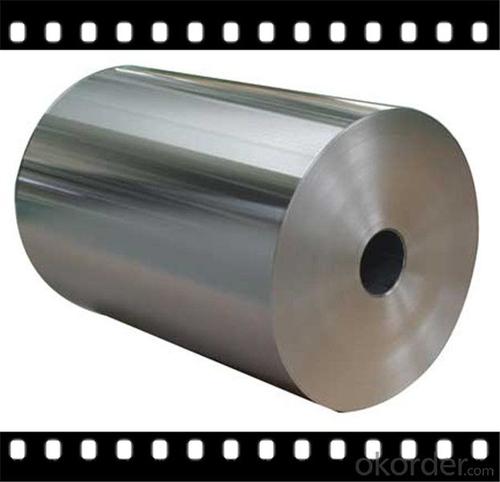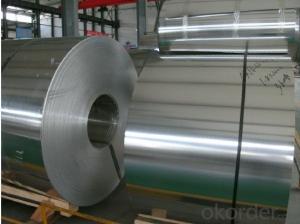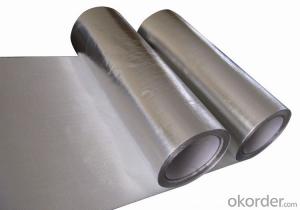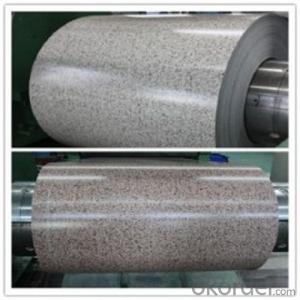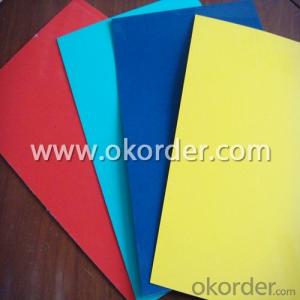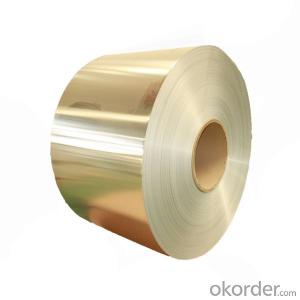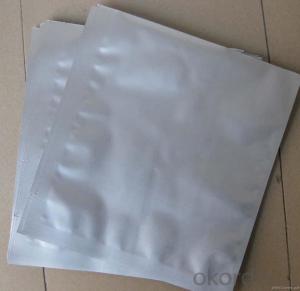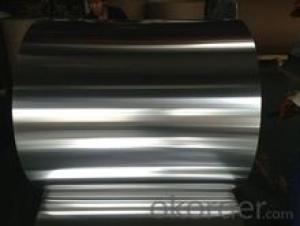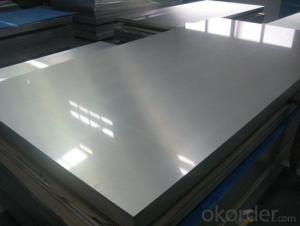Aluminum Foil Coil for Transformer/Electronic Components - DC/CC Aluminium Coil CNBM
- Loading Port:
- Shanghai
- Payment Terms:
- TT OR LC
- Min Order Qty:
- 5 m.t.
- Supply Capability:
- 2000 m.t./month
OKorder Service Pledge
OKorder Financial Service
You Might Also Like
Quick Details
Brand Name: | DC/CC aluminium coil | Model Number: | 1xxx, 3xxx,5xxx, 8xxx | ||||
Application: | Auto parts, household appliances and so on | Thickness: | 0.2~7.0mm, 0.2-7mm | Width: | <1500mm< span=""> | ||
Alloy Or Not: | Is Alloy | Grade: | 1000 Series, 1100 1020 3003 5052 8011 | Surface Treatment: | Coated | ||
Temper: | O - H112 | widthness: | 300-1400mm | ||||
Packaging & Delivery
Packaging Details: | anti-water paper packed inside ,kraft paper or PE ,PVC outside ,wood pallet ,our mini order is 1 ton /pallet |
Delivery Detail: | 10~20 days |
Specifications
1. Aluminum coil
2. Alloy:1xxx,3xxx,5xxx,8xxx
3. Dimension: customized
4. Full stock delivery on time
DC/CC aluminium coil for transformer /electronic components
Grade : 1100.1050,1060,1070,1200, 3003, 3105 ,5052A, 8011. Etc
temper : H14, H24, H18, H12 ,H22 ,H16 ,H26 ,O
Features:
1. Thickness of aluminum coil : 0. 2mm~ 7mm
2. Width of aluminum coil : 1000mm, 1200mm, 1220mm or optional
3. Length of aluminum coil : Optional
4. AA of aluminum coil : 1100.1050,1060,1070,1200, 3003, 3105 ,5052A, 8011. Etc
5. State of aluminum coil : H14, H24, H18, H12 ,H22 ,H16 ,H26 ,O
6.application of aluminum coil :used in construstion and decoration,aluminum roofing ,curtain wall ,hardware and electric appliance manufacture ,automobile manufacture and other industrial and civil purpose ,such as electronic capacitor ,composite cooker,rice cooker ,refrigerator ,computer casing ,airecondtioner radiators,etc.
Status Comparison of Aluminum sheet /Strip | ||||
Temper | Brinnell's Hardness (HB) | Vicker Hardness(HV) | Original Status | Explanation |
O | 19-23 | 23-28 | M soft | Complete annealing state ,suitable for complete annealing to obtain processed product with lowest strength |
H12,H22 | 23-30 | 30-36 | 1/4 hardness | H12 : First anneal in the middle and tehn re-roll to obtain process product with 1/4 hardness; H22 :Directly anneal for 1./4 hardness product |
H14,H24 | 31-40 | 38-42 | half-hard | H12 : First anneal in the middle and tehn re-roll to obtain process product with 1/2 hardness; H22 :Directly anneal for 1/2 hardness product |
H16,H26 | 37*40 | 40-45 | 3/4 hardness | H16 : First anneal in the middle and tehn re-roll to obtain process product with 3/4hardness; H26 :Directly anneal for 3/4 hardness product |
H18 | 40above | 45 above | hard | Hard ,suitbale for processing hardness products |
Terms of Payment: T/T, L/C and other payments
Productivity: 2000 metric ton per month
Certificate: ISO9001,9002,Product Exemption from Quality Surveillance Inspection etc.
Packing: Blank waterproof paper/PE, Kraft, Wooden
Delivery Date: 10---20 days
Min Order: 5 tons
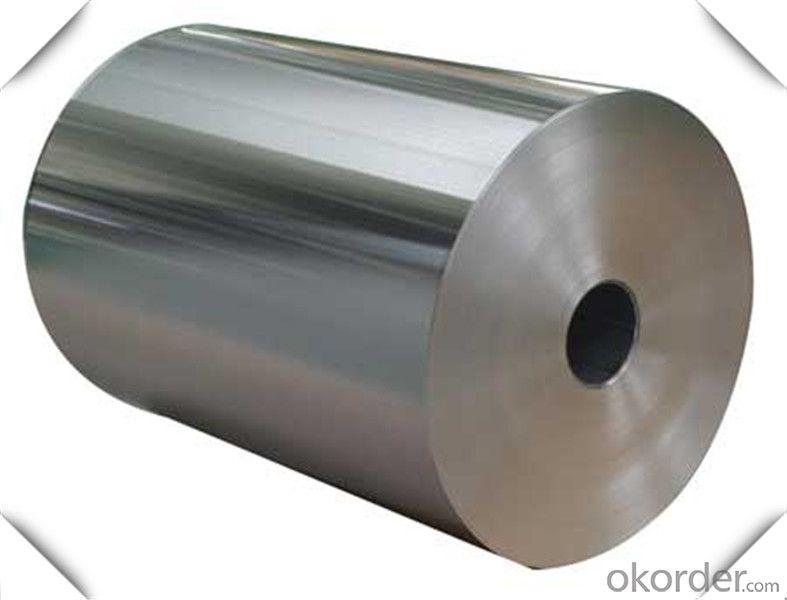
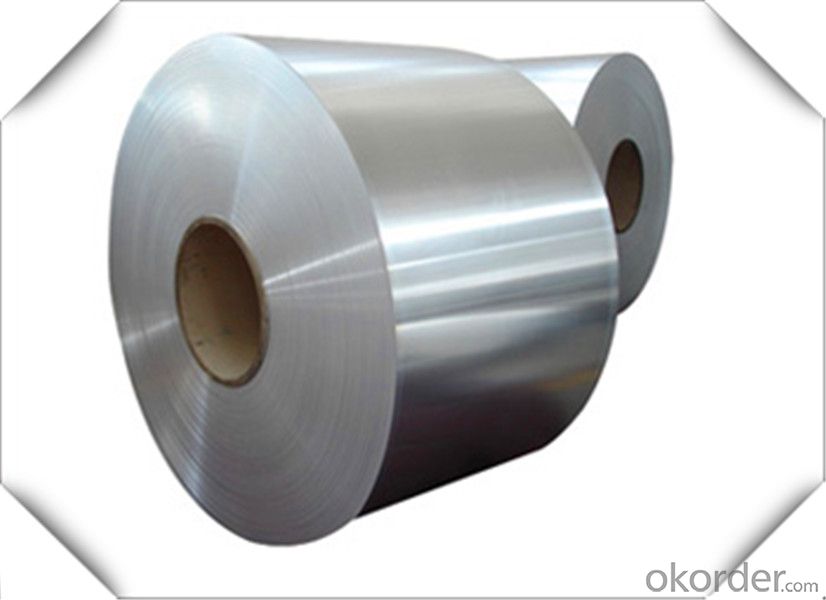
FAQ:
product introduction
the four most common aluminium grades available as sheet metal are 1XXX,3XXX,5XXX series.
1XXX series is commercially pure aluminium,so it is highly chemical and weather resistant.It is ductile enough for deep drawing and weldable.but low strength.It is commonly used in chemical processing equipment,light reflectors,and jewelry.
3XXX series is stronger than 1100,while maintaining the same formability and low cost.
It is corrosion resistant and weldable,It is often used in stampings,spun and drawn paths,mail boxes,cabinets,tanks,reflectors and fan blades.
5XXX series is stronger than 3003 while still maintaining good formability. It maintains high corrosion resistance and weldability,common applications include electronic classis,tanks,and pressure vessels.
- Q: What substances are used to make aluminum coils?
- <p>Aluminum coils are made from aluminum, a lightweight and malleable metal with the chemical symbol Al. They are typically produced from high-purity aluminum or aluminum alloys, which may include small amounts of other elements to enhance specific properties such as strength, durability, or resistance to corrosion. Pure aluminum is soft and lacks strength, so alloys are often used to improve these characteristics for various applications.</p>
- Q: Can aluminum coils be used in the production of architectural façades?
- Yes, aluminum coils can be used in the production of architectural façades. Aluminum is a popular material choice for façades due to its durability, lightweight nature, and aesthetic appeal. The use of aluminum coils in façade production allows for easy customization, as they can be easily formed and shaped into various designs and profiles. Additionally, aluminum is resistant to corrosion, making it suitable for exterior applications. It also offers excellent thermal and acoustic insulation properties, contributing to energy efficiency and soundproofing. Overall, aluminum coils provide a versatile and efficient option for the production of architectural façades.
- Q: Dongying power plant with 0.6mm thick insulation aluminum coil, manufacturers can be divided into small volumes?
- Tolerable。 The price depends mainly on what you need to split into.
- Q: Can aluminum coils be used in high-vibration environments?
- Yes, aluminum coils can be used in high-vibration environments. Aluminum is a lightweight and flexible material that can withstand and absorb vibrations effectively. It is commonly used in various industries, including automotive and aerospace, where high-vibration environments are prevalent. Additionally, aluminum coils are often designed and manufactured to have enhanced durability and resistance to vibration-related issues such as fatigue and cracking.
- Q: How are aluminum coils tested for thickness and flatness?
- Aluminum coils are tested for thickness and flatness using various methods to ensure they meet the required specifications. One common method is the non-destructive eddy current testing, which involves passing an alternating current through a coil and measuring the changes in the magnetic field caused by eddy currents induced in the aluminum. These changes can be used to determine the thickness of the coil. In addition to eddy current testing, ultrasonic testing is also employed to measure the thickness of aluminum coils. Ultrasonic waves are sent through the coil, and the time it takes for the waves to bounce back is measured to determine the thickness. This method is highly accurate and can identify any variations in thickness across the entire coil. To assess the flatness of aluminum coils, a straight edge or a laser beam is often used. The coil is placed on a flat surface, and the straight edge or laser beam is placed across the surface of the coil. Any deviations from a perfectly flat surface can be easily identified by observing the gaps or irregularities between the coil and the straight edge or laser beam. In some cases, advanced technologies like laser profilometry can be used to create a three-dimensional map of the surface of the coil, allowing for a comprehensive analysis of its flatness. This method provides highly detailed information about any variations in flatness across the coil's surface. Overall, aluminum coils undergo rigorous testing procedures to ensure their thickness and flatness meet the required standards. These tests are vital in maintaining the quality and reliability of aluminum coils, especially in applications where precision and consistency are of utmost importance.
- Q: Are aluminum coils resistant to chemicals?
- Yes, aluminum coils are generally resistant to chemicals. Aluminum has excellent corrosion resistance and can withstand exposure to various chemicals, making it a suitable choice for applications that involve chemical processing or storage.
- Q: What are the various techniques used in the manufacturing process to create insulation for aluminum coils?
- <p>Aluminum coil insulation is produced using several methods, including lamination, extrusion, and coating. Lamination involves stacking thin sheets of aluminum with insulating material between them. Extrusion is a process where aluminum and insulation materials are pushed through a die to create a continuous profile. Coating methods apply a layer of insulating material directly onto the aluminum coil surface. These methods ensure the insulation maintains its properties under varying conditions, providing electrical isolation and protection against environmental factors.</p>
- Q: What rules or laws govern the transportation of old or damaged aluminum coils?
- <p>Yes, there are regulations on the transportation of old or damaged aluminum coils. These regulations often fall under hazardous materials or waste transportation laws, depending on the condition of the coils. In the United States, the Department of Transportation (DOT) regulates the transportation of hazardous materials, which may include damaged aluminum coils if they pose a risk. The Environmental Protection Agency (EPA) also has guidelines for the transportation of waste materials. Internationally, the International Maritime Dangerous Goods (IMDG) Code and International Air Transport Association (IATA) Dangerous Goods Regulations provide guidance for the safe transport of such materials. Compliance with packaging, labeling, documentation, and handling requirements is crucial to ensure safety and avoid penalties.</p>
- Q: Are aluminum coils resistant to moisture?
- Yes, aluminum coils are highly resistant to moisture. Aluminum has a natural oxide layer that forms on its surface, which acts as a protective barrier against moisture and prevents corrosion. This makes aluminum coils an excellent choice for applications where exposure to moisture is a concern, such as in HVAC systems or outdoor equipment.
- Q: Can aluminum coils be used in the production of automotive parts?
- Yes, aluminum coils can be used in the production of automotive parts. Aluminum is a lightweight and highly malleable metal, making it an ideal material for manufacturing various automotive components. Aluminum coils can be used to create parts such as body panels, hoods, fenders, doors, and even engine components. The use of aluminum in the automotive industry offers several advantages, including improved fuel efficiency, better performance, and reduced vehicle weight. Additionally, aluminum coils are easy to work with and can be formed into complex shapes, allowing for greater design flexibility in automotive part production. Overall, the use of aluminum coils in the production of automotive parts is common and has become increasingly popular in recent years.
Send your message to us
Aluminum Foil Coil for Transformer/Electronic Components - DC/CC Aluminium Coil CNBM
- Loading Port:
- Shanghai
- Payment Terms:
- TT OR LC
- Min Order Qty:
- 5 m.t.
- Supply Capability:
- 2000 m.t./month
OKorder Service Pledge
OKorder Financial Service
Similar products
Hot products
Hot Searches
Related keywords


